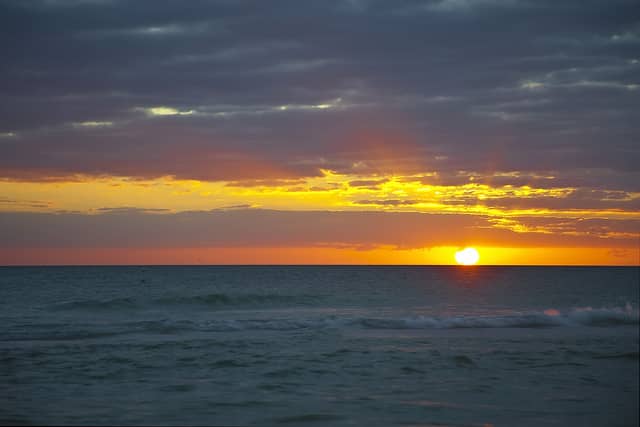National Poll of Hunters and Anglers Shows Overwhelming Support for Gulf Clean-up
OutdoorHub Contributors 10.04.12

A new national poll shows that hunters and anglers prioritize protecting the Gulf ecosystem and using fines paid by BP and other parties responsible for the 2010 Gulf oil disaster to be used for Gulf restoration. The poll conducted by Chesapeake Beach Consulting shows threats to America’s conservation heritage are priority issues for sportsmen and women, on par with gun rights.
An overwhelming 81% of sportsmen polled strongly believe BP should be held accountable and fined the maximum amount allowed for the 2010 Gulf oil disaster and that those funds should be used exclusively to restore the fish and wildlife habitat of the Gulf of Mexico and its hunting and fishing heritage and not used for infrastructure projects such as roads, bridges, ports and convention centers (87%).
The poll’s results further support the RESTORE Act, an important piece of bipartisan, bicameral legislation passed earlier this year that dedicates 80 percent of the Clean Water Act fines collected from BP and other responsible parties to restoring the Gulf Coast.
“Using money from the Gulf oil disaster to restore the Gulf of Mexico makes sense to anglers all across the country;” said Mack Turner, chairman of the board for the Texas Conservation Alliance. “The Gulf Coast supports a world-class fresh and saltwater fishery vital to our business and outdoor heritage and relies on healthy fisheries and the habitat which support them.”
“Sportsmen want healthy fish and duck populations, which depend on healthy estuaries along our coast,” Susan Kaderka, regional executive director of the National Wildlife Federation. “Because so much water is diverted upstream, our Texas estuaries don’t always get the fresh water that is essential to their health and productivity. RESTORE Act funds offer one solution to that problem: the state should use them to buy water rights to help meet these environmental needs. Texas needs to make these kinds of investments now to maintain a healthy Gulf ecosystem for future generations.”
The Gulf ecosystem suffered from rapid decline before the oil spill, which only exacerbated existing landloss issues, especially around the Mississippi River Delta. Although much of the visible oil is gone, some of the tar balls and tar mats stirred up by last month’s Hurricane Isaac were identified as remnants from the 2010 Gulf oil disaster. The region remains in jeopardy as food supplies and habitats are still recovering from the impacts of oil — and may face impacts from the spill for decades.
“The Gulf Coast has incredibly diverse fishing opportunities and is the country’s most important wintering habitat for ducks and geese, but these are threaten resources which urgently need restoration,” said Ricky Talkington, founder of Decoy Outdoors, based in Irving, Texas. “Using money from the Gulf oil disaster gives us an opportunity to achieve lasting, meaningful restoration of our Gulf Coast and protect our nation’s waterfowl, fish and wildlife.”
“British Petroleum should be prosecuted and made to pay the highest fine allowed by law for the Gulf oil disaster. It’s then imperative that all the money from the RESTORE Act be used in restoration of environmentally impacted areas and not on pork barrel projects,” said Randy Wheeler, executive director of Texas Waterfowl Association.
Read the poll memo and slide deck at nwf.org/sportsmen and get more National Wildlife Federation news at nwf.org/news.
Poll background:
This national public opinion poll conducted among 800 self-identified hunters and anglers was conducted by Chesapeake Beach Consulting from August 27 through September 1, 2012 for the National Wildlife Federation. The sample for this survey was randomly drawn from a list of self-identified hunters and anglers. To qualify, a respondent must have indicated they were a hunter, an angler or both as well as a registered voter. All interviews were conducted by telephone, including 15% of the interviews by cell phone. The margin of error for this study is plus or minus 3.2% at the 95% confidence level.

